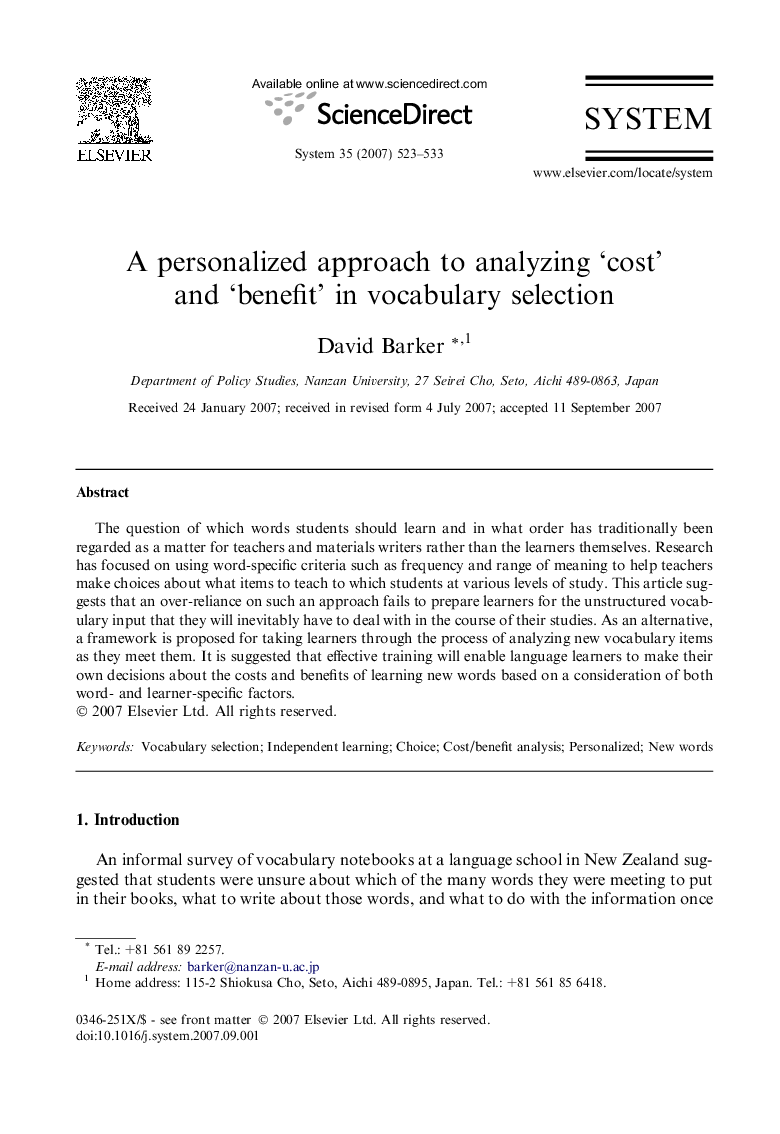| کد مقاله | کد نشریه | سال انتشار | مقاله انگلیسی | نسخه تمام متن |
|---|---|---|---|---|
| 373287 | 622296 | 2007 | 11 صفحه PDF | دانلود رایگان |

The question of which words students should learn and in what order has traditionally been regarded as a matter for teachers and materials writers rather than the learners themselves. Research has focused on using word-specific criteria such as frequency and range of meaning to help teachers make choices about what items to teach to which students at various levels of study. This article suggests that an over-reliance on such an approach fails to prepare learners for the unstructured vocabulary input that they will inevitably have to deal with in the course of their studies. As an alternative, a framework is proposed for taking learners through the process of analyzing new vocabulary items as they meet them. It is suggested that effective training will enable language learners to make their own decisions about the costs and benefits of learning new words based on a consideration of both word- and learner-specific factors.
Journal: System - Volume 35, Issue 4, December 2007, Pages 523–533